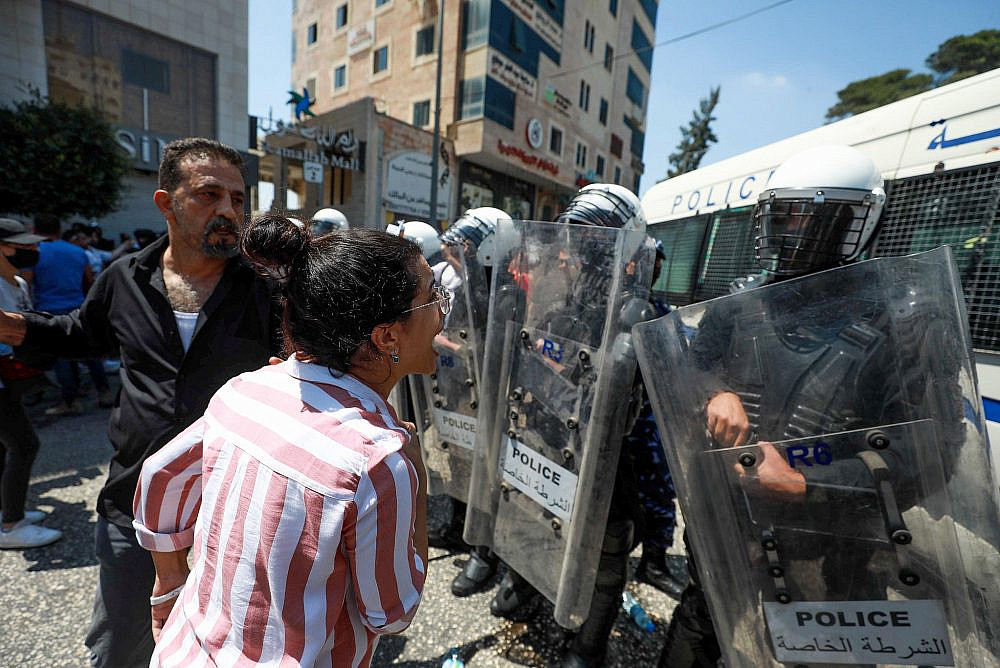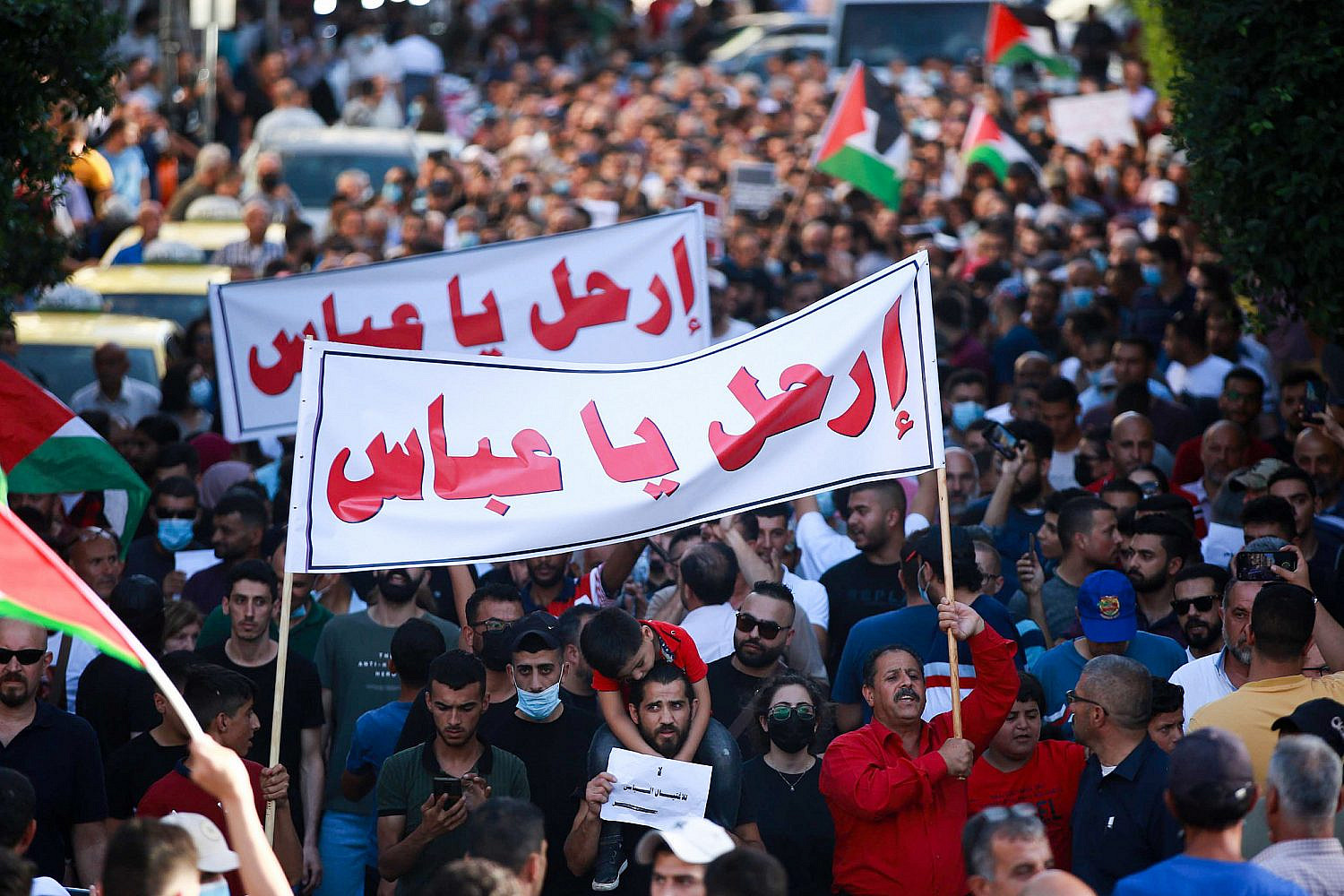Palestinian journalist Faten Elwan is used to reporting in dangerous conditions. During the Second Intifada in the early 2000s, she faced Israeli tanks and helicopters. She was shot twice by Israeli soldiers while on the job — once while covering events in the West Bank city of Ramallah, and again in the city of Nablus. But for the first time, Elwan says she fears for her safety.
Since the killing of outspoken government critic Nizar Banat on June 24 under the custody of Palestinian Authority security forces, who violently arrested him in his relatives’ home near Hebron, thousands of Palestinians have taken to the streets across the occupied West Bank to protest against the PA, viewing the government as corrupt and authoritarian.
Palestinian journalists, including Elwan, said that Palestinian security forces and loyalists to President Mahmoud Abbas’s Fatah party attacked them while they were covering the demonstrations and repeatedly tried to seize their phones and equipment. In some cases, journalists were beaten and harassed by undercover agents, employing tactics used by Israeli forces against Palestinians.
In a demonstration in Ramallah on June 26, Elwan, a veteran journalist with more than 65,000 followers on Facebook, was filming and documenting as hundreds of protesters demanded a change in the Palestinian government amid crackdowns on freedoms, while chanting against President Abbas and other leaders.
“I was approached directly by a policeman who snatched my phone from my hand as I was filming, and then started pulling me from my bag,” said Elwan, who was wearing a press jacket while documenting the events. She clarified that, as the safety guidelines for journalists dictate, she was standing on the police side of the protest.
“I asked him to hand my phone back, but he insisted that I speak with the officer in charge,” Elwan continued. Her phone was passed from one security member to another until it was eventually returned to her, but with conditions.
“I was asked to leave the police side and move to the protesters’ side,” said Elwan. But she deplored the policeman’s request, given that police were shooting at the protesters. Elwan decided to leave the scene entirely: “I took a step ahead, and a step to the back, and then left,” she said with a sigh.
The following day, about 20 Palestinian journalists were covering an anti-government protest in Ramallah when they were suddenly surrounded by a group of people who turned out to be undercover security personnel, according to Elwan. “They were repeating one phrase: ‘security officer, bring the press people,’” she recalled. “They were divided into groups of 30, intimidating and targeting known journalists who were documenting the events on the ground.”
Even before the protests, Elwan said she was approached by an acquaintance who warned her that she might be blacklisted by the PA if she did not “take a side.” “I knew he was only a messenger delivering a message that I’m on the edge,” she explained. “I asked him to define the two ‘sides’ in order to understand how to respond or protect myself. He didn’t know how to answer.”
The PA forces, Elwan added, were not only beating Palestinian journalists at protests but pursuing and threatening them long afterward. “I know a journalist who has been on the run since Sunday, as he was threatened [by PA forces],” she said. Besides fearing for her own safety, Elwan is worried that any threats she might receive could also target her relatives and loved ones. “They can chase Faten in the field, but I fear for my family,” she said.
Elwan also lamented how, during protests against Israel’s occupation, she used to take shelter in the facilities of the Palestinian security forces to escape attacks by Israeli soldiers. “Today, where am I supposed to take shelter? Who is supposed to protect me?”
‘We found ourselves being hunted’
Two days after the protests began following Banat’s murder, the Palestinian Journalists Syndicate on June 26 accused the PA security forces of attacking journalists and preventing them from reporting the events; they also noted that in some cases, police had witnessed attacks on the press but did nothing to stop them.
The Syndicate called on journalists to boycott all news conferences held by the Palestinian president and other PA officials until the government dismissed the police chief and held assailants who attacked journalists accountable.
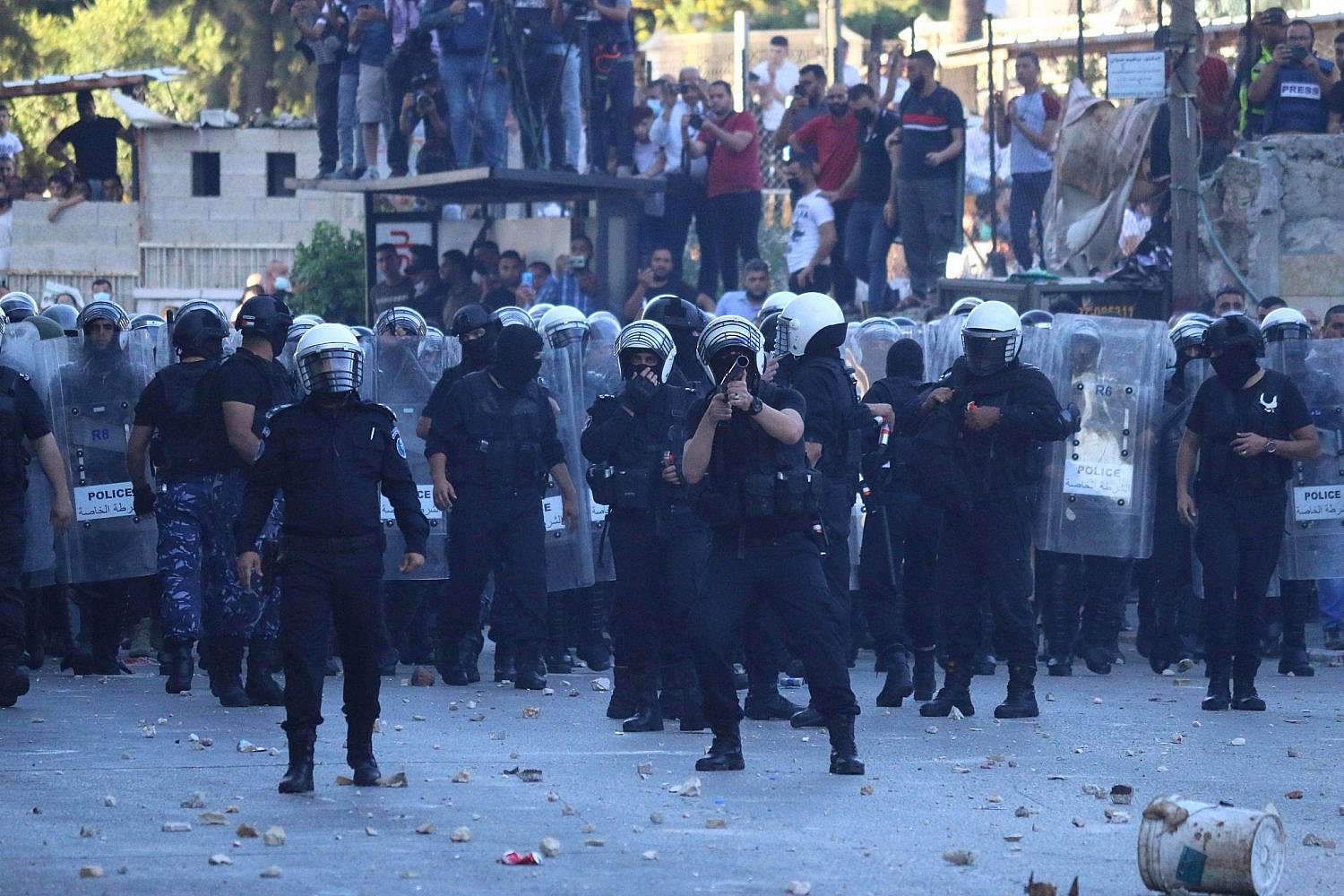
Many of these assailants were not only uniformed officers. Najla Zaiton, a Palestinian reporter for the AlQuds News Network, said she was assaulted by a man in civilian clothing during a protest in Ramallah while reporting in her full press attire and carrying her press card.
“He was wearing a mask covering his face when he pushed me. I immediately showed my press card and tried to explain that I was a journalist, but he regardlessly hit me with all his force on the left shoulder.” Zaiton is now suffering from swelling and bruises on her shoulder and her left leg, as documented by a Ramallah hospital where she received treatment.
While covering the demonstration at Manara Square in the city center, Zaiton noticed that as soon as the anti-PA protesters started moving toward the Muqata’a, the government’s administrative headquarters, they collided with a different demonstration.
“They were a group of people chanting slogans in support of the government and the Fatah movement,” she explained. “Then all of a sudden, the crowds started exchanging insults and throwing bottles of water at each other.” The pro-government supporters accused the protesters of being traitors and spies against Fatah, she added.
While Zaiton was filming the events, a man approached her from behind and tried to snatch her phone, but she managed to walk away. “I continued to film, until all of a sudden I was attacked by one of the anti-government protesters with a long wooden stick, similar to those used in construction sites,” she recalled.
When Zaiton fell to the ground, another man snatched her phone, which was recently confiscated by the PA police, out of her hand and started running away. Zaiton tried to follow him, but other Fatah protesters were purposefully obstructing her way. They passed her phone from one person to another until it reached a checkpoint manned by the Palestinian security forces.
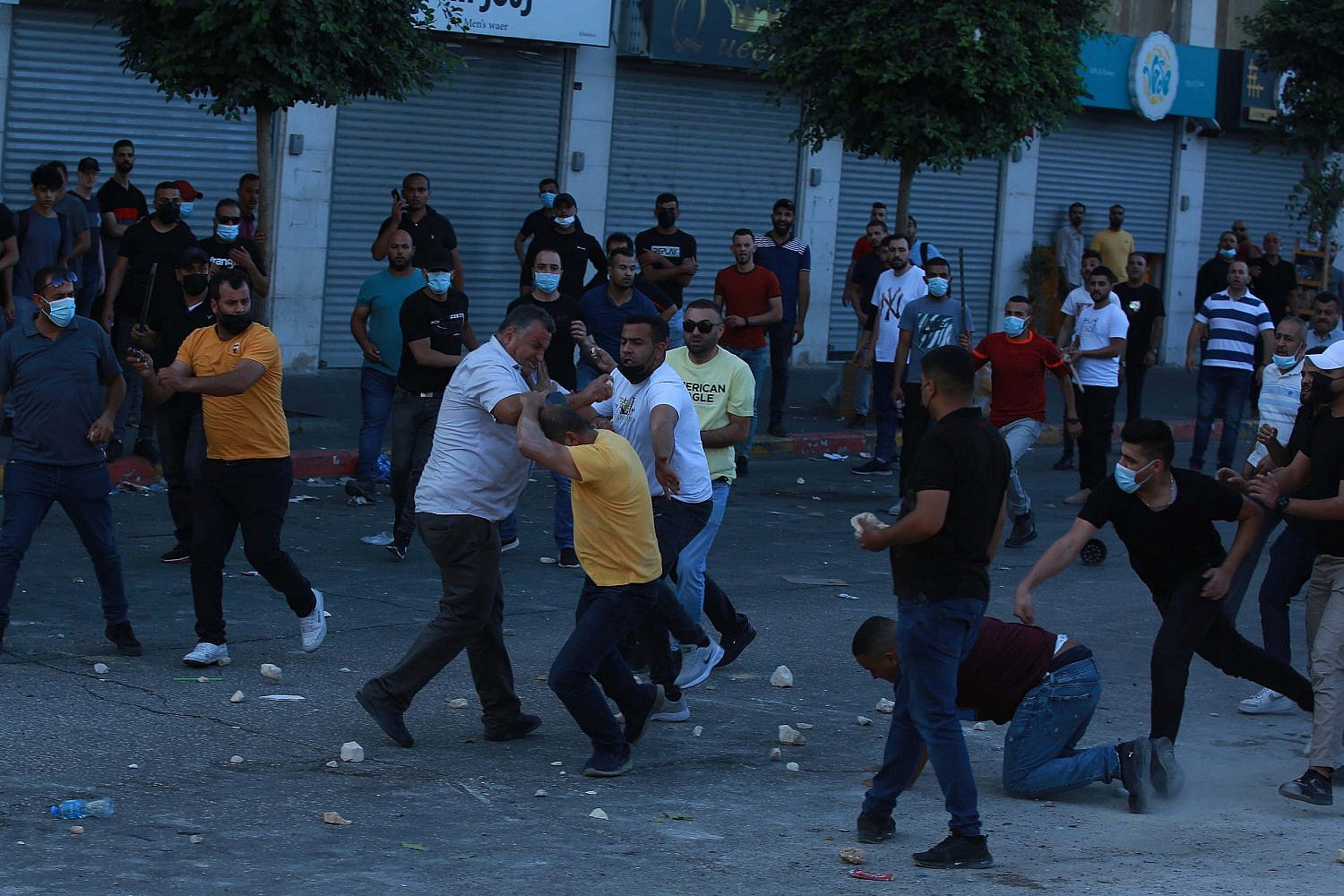
“The phone was handed to a Palestinian officer there. I tried to explain to him what happened and showed my press card. But a group of people showed up and surrounded me while pointing their cameras at me, as I was screaming asking for my phone,” she said.
Zaiton was then verbally assaulted by a woman who introduced herself as a member of the Palestinian security forces. “She was telling the men to harrass me before they handed me to her. I asked her who she was, and she answered that she was ‘a daughter’ of the Palestinian security establishment.” Even if the woman was a security agent, she had no right to attack her or speak with her in the way, especially as she was not in her official uniform, said Zaiton.
“Minutes later, another woman came telling me to leave in a provocative and disrespectful way, but I told her that I need to have my phone back before I do that,” continued Zaiton. Later, the woman asked Zaiton to leave again, but this time was accompanied by a police officer in his uniform. “He asked me to keep a distance of at least 10 meters away from them and the checkpoint. Then another person came and threw a stone at my left leg,” she said.
At that point, Zaiton stopped documenting the protests and was only focused on trying to protect herself from the attacks. When she searched for other journalists at the scene to try taking shelter with them, she saw that a pro-Farah protester was attacking her colleague Fayhaa Khanfar and was trying to take away her phone, she said.
The journalists eventually found themselves fleeing from a group of undercover security agents. “We were trying to walk away for our own safety, but then we found ourselves being hunted by these people,” said Zaiton.
Mimicking Israeli tactics
The prevalence of undercover and plain-clothed security agents — a tactic commonly used by the “mista’arivim” unit of the Israeli army against Palestinian demonstrations — has been a prominent feature of the PA’s efforts to thwart the protests over the past two weeks.
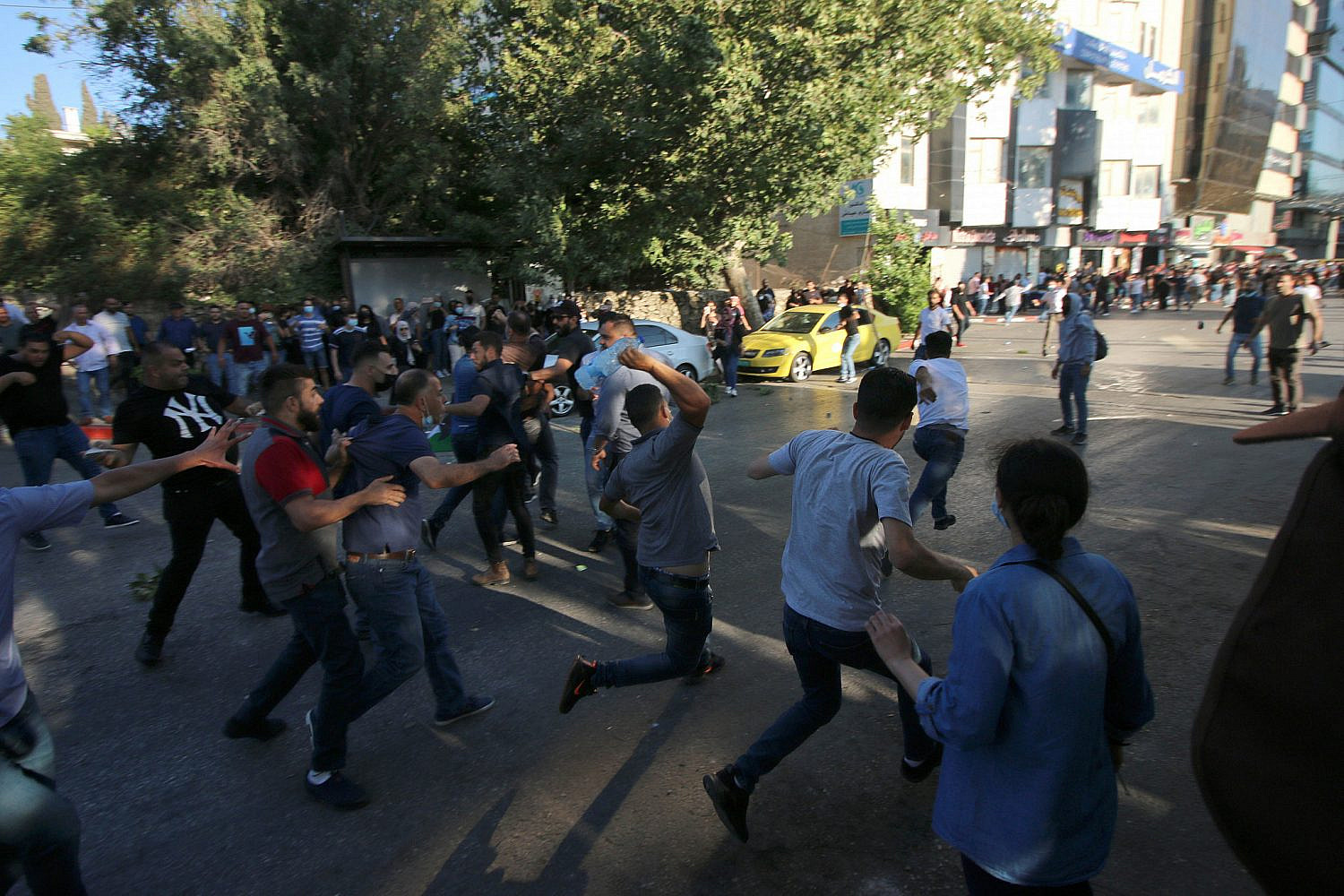
Moeen al-Taher, a Palestinian political analyst and writer for the Institute for Palestine Studies based in Amman, explained that the main purpose of these agents is to infiltrate the demonstration and arrest the leaders of the protest. “They were also targeting journalists in order to prevent them from covering these events, while confiscating their phones and equipment or even destroying them,” he said.
Notwithstanding their serious harms, al-Taher told +972 that perhaps the most dangerous element of the recent events were the counter-demonstrations organized by the PA, which largely included members of the security forces and other members of the Fatah movement. “The goal is to cover up the original demonstration and to give the PA forces an excuse to break it up under the pretext of stopping the clashes, which they themselves created,” he explained.
He emphasized that the PA should have defused the incident following Banat’s killing by establishing an independent legal process, instead of trying to manipulate and preempt the ensuing events “under the claim that these demonstrations aimed to sabotage [the PA], and therefore needed to be suppressed. In fact, the protests were generally peaceful thus far,” he added.
al-Taher elaborated that the Fatah leadership had attempted to mobilize members of its movement to make it appear as if the clashes were simply fights between political factions, and thus pretend that they reflected a social split in the Palestinian street. “This is, in fact, a great danger to the entire Palestinian movement,” he stressed.
Palestinian activists and leading figures heavily criticized the PA for mimicking Israeli tactics in suppressing the demonstrations, whether by special forces or undercover agents. al-Taher noted that as soon as the recent “Unity Intifada” — which was sparked in Jerusalem in late April — both the PA and Israel carried out daily arrests against Palestinians who participated in the mass protests.
“We noticed that there was an integration in terms of these arrests: those who were not arrested by the PA were arrested by Israel, and vice versa,” al-Taher said. He added that it was clear there was full coordination between the two authorities.
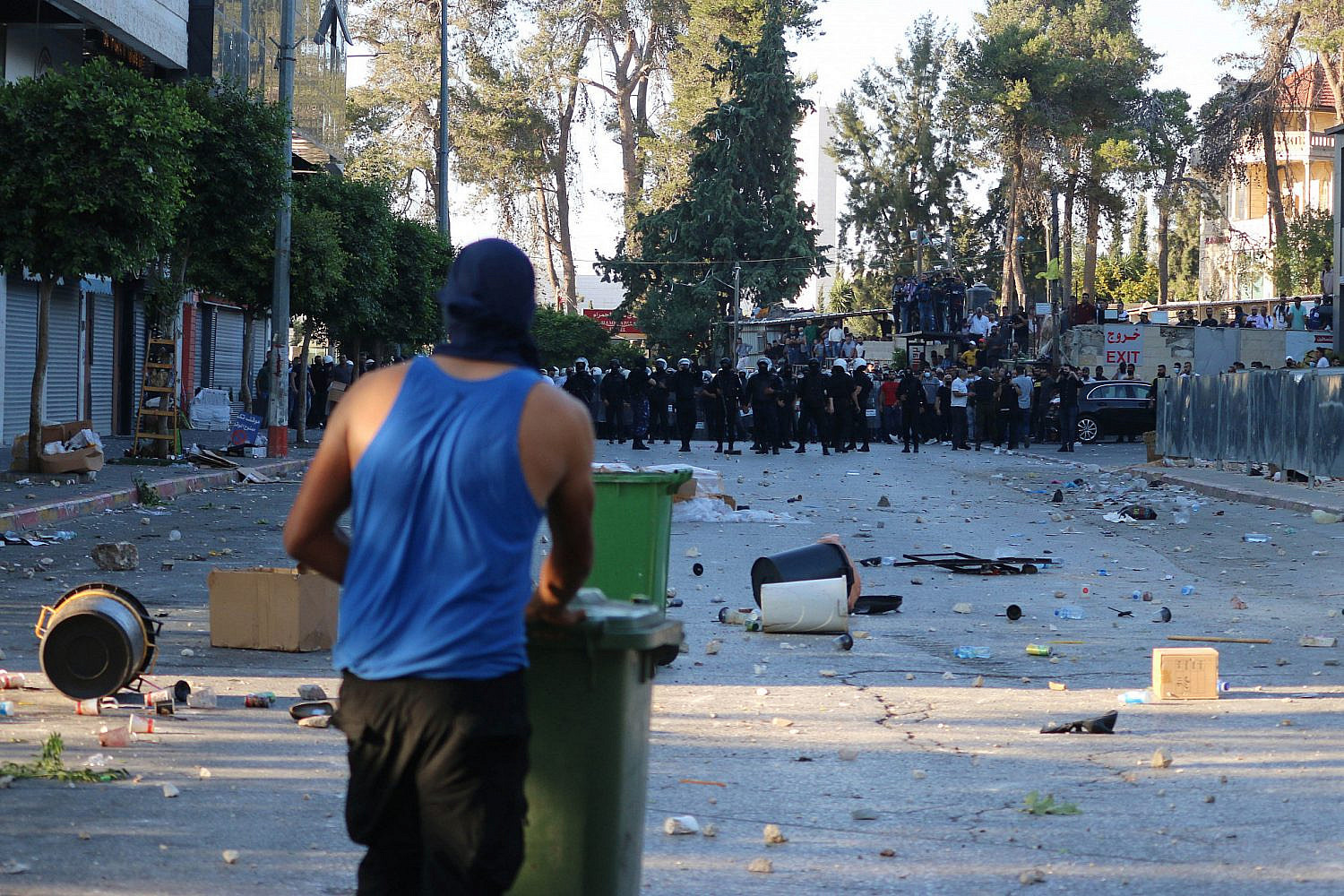
Al-Taher further pointed out that the PA arrest operation that killed al-Banat was conducted in Area C of the West Bank, which lies under full Israeli control according to the Oslo Accords. “Palestinian security forces are not allowed into these areas,” he explained, and would therefore require Israeli permission to enter. He also pointed out that the methods used to arrest Banat “were similar to the tactics used by Israeli special forces when arresting Palestinians,” including blowing up the door of his house before storming it.
‘Anyone around you could be used to suppress you’
Rita Ammar, a 22-year-old student of Birzeit University, was shocked by how quickly the PA’s strategies had escalated against its own people, making the public’s demands from the leadership even more grave.
“There is a significant shift in the policies practiced by the PA in suppressing demonstrators and political opposition,” Ammar said. About a month ago, she had participated in protests against political arrests in the West Bank. “Today, we woke up to a new reality of political assassination,” she said.
During the recent protests, Ammar and her peers were chased by the Palestinian security forces in the alleys of Ramallah’s Old Town, and attacked by police officers and undercover agents with gas bombs and sound grenades, along with beatings and arrests. “They used wooden sticks, stones, and their heavy military boots,” she said.
Ammar added that a counter-demonstration which took place near the protest was protected by the Palestinian police and security forces. “Those who were partaking in that demonstration were Fatah students that I know from college,” she noted.
She said that Palestinian protesters had tried to create a defensive circle to protect the protest and keep it separate from the counter-demonstration, but clashes took place despite their attempts. “When they attacked us, the police did nothing. But when the protesters started responding to their attacks, the police stormed our protest.”
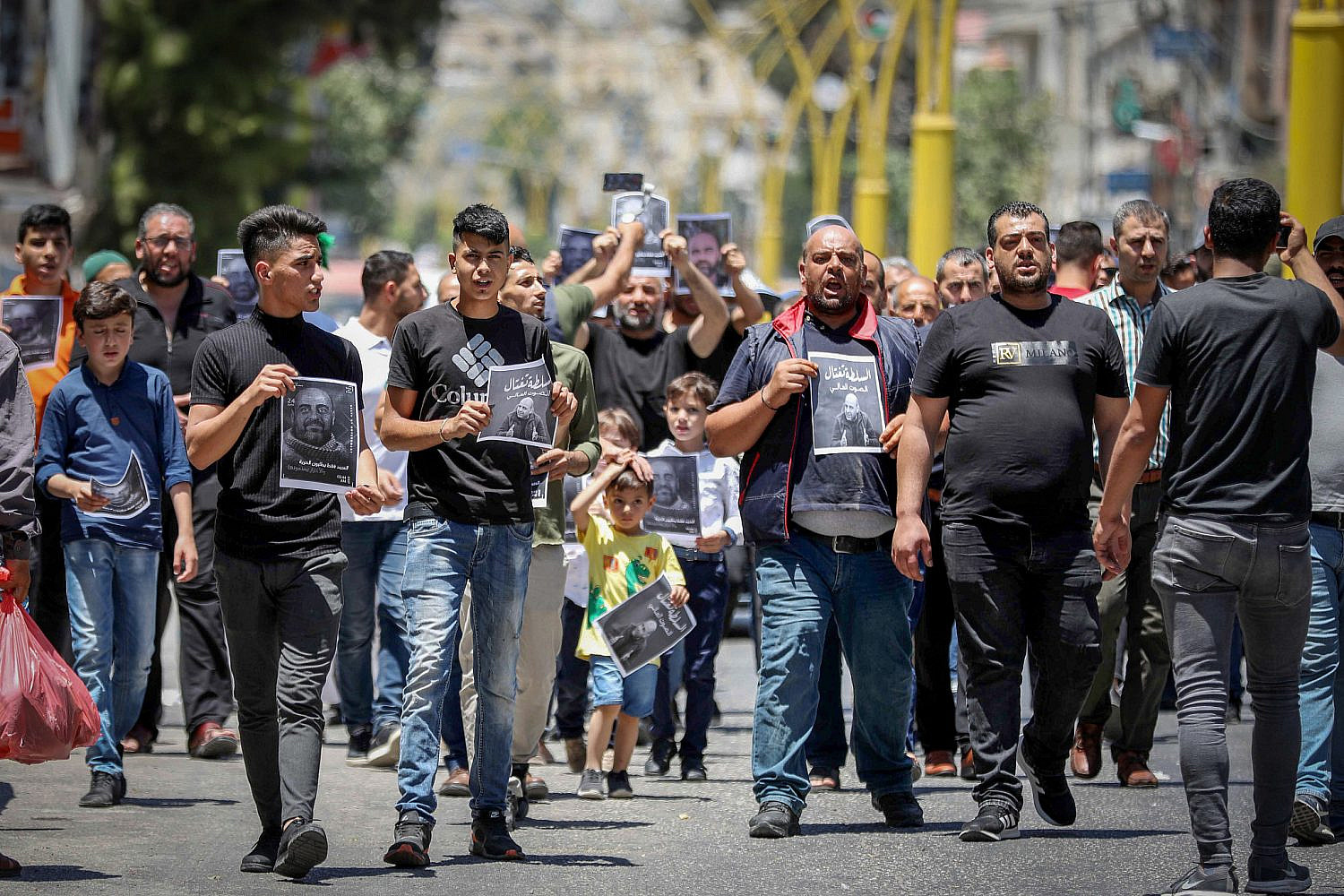
Ammar and her friend tried to hide and run away, but the security forces and undercover agents were chasing protesters and brutally attacking them. “I saw a young person lying on the ground surrounded by over 20 security members beating him, despite the fact he was unable to move,” she said.
When Ammar tried to help by covering him with her body, thinking the assailants would not attack a girl because it would be considered shameful, she too was attacked. Ammar’s hands and legs were subsequently covered in bruises, and she suffered a strong trauma to her rib cage, according to the Istishari Arab Hospital in Ramallah where she was treated.
“In my life, my struggle against the Israeli occupation was crystal clear,” Ammar said. “But now, it is painful and confusing, especially when you know that your neighbor or a taxi driver you know, or anyone around you, could be used by the PA to suppress you.”

